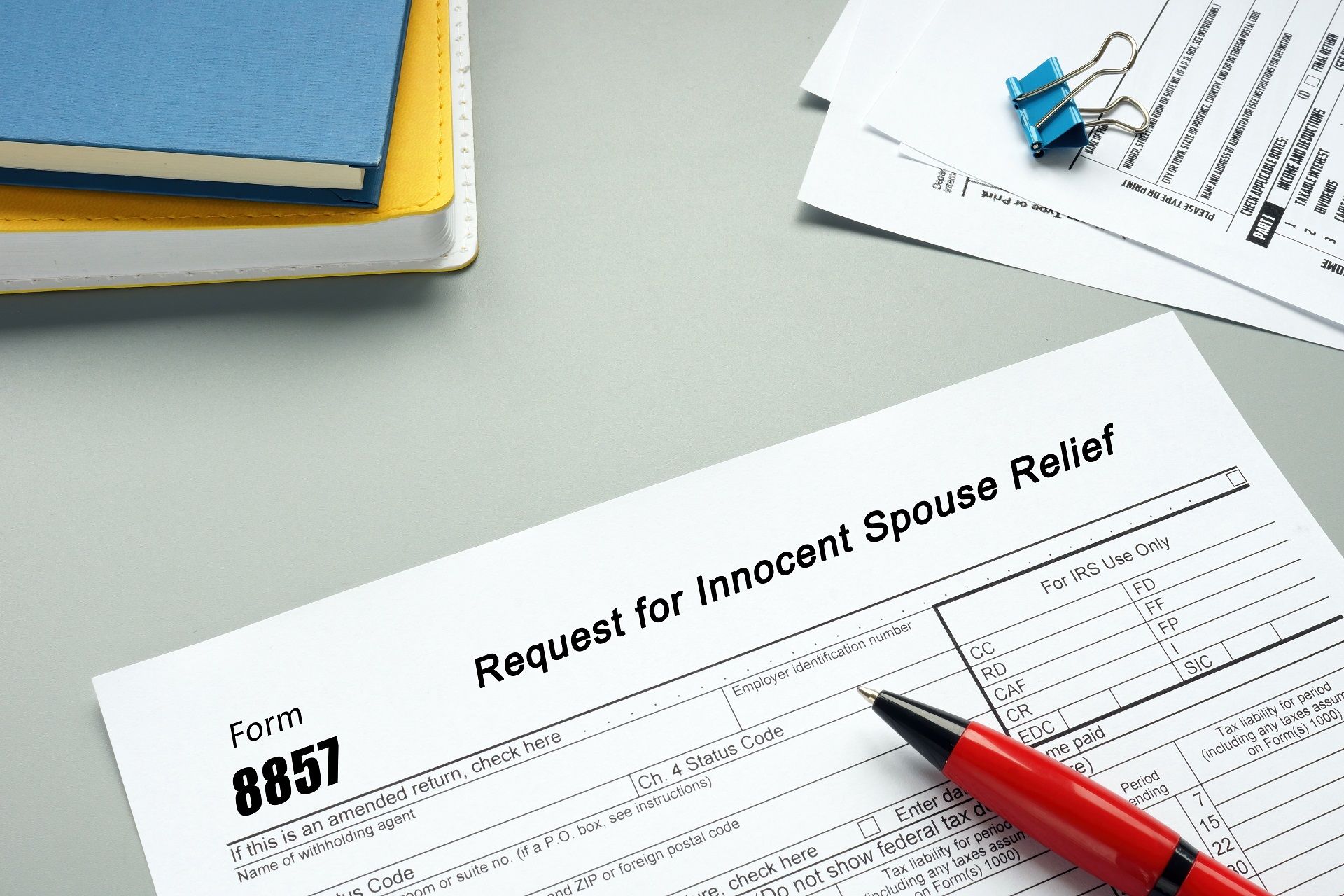Call: 941-906-7585
Email: tax@kinglawpl.com
Everything You Need to Know About Stimulus Check in Florida
There is always a healthy debate about the role of government in people’s lives during normal times. Yet, it is in times of crisis when we turn to the government for help.
Right now, were are in one of the most devastating crises in our nation’s history. The COVID-19 pandemic has caused us to employ extraordinary safety and health measures, and the economic fallout from having to social distance may result in an economy that is worse than the Great Depression.
Congress, however, recently passed legislation to help the country through this health crisis. In this article, we will discuss those legislative provisions that will provide stimulus money directly to individuals. We we also talk about any tax issues that may surround those payments.
The CARES Act
Congress just passed, on March 27, 2020, an economic stimulus package to help the country weather this economic downturn. That is the $ $2.2 trillion stimulus package you may have heard about in the news. The legislation, called the Coronavirus Aid, Relief, and Economic Security Act (CARES Act) is meant to provide economic stimulus nationwide so that, among other things, individuals can receive money to help pay bills during the crisis.
Specifically, under the CARES Act, about $425 billion is earmarked as a fund to be distributed by the U.S. Treasury as direct payments to individuals and families who qualify.
Individuals making $75,000 or less per year will receive a so-called “economic impact payment,” which is a $1,200 check (or direct deposit). Married couples with a combined income below $150,000 will get $2,400. Also, families with children will receive an additional $500 per child under the age of 17.
The amount of the payment gradually decreases as an individual’s income gets closer to $99,000, or $198,000 for married couples. The bill also limits foreclosures and evictions of renters during the time of the crisis.
In addition, the maximum weekly unemployment benefit, until July 31, 2020, will increase by $600 per week, with the government fully funding that increase, so employers do not need to pay more in unemployment benefits.
Is the Economic Impact Payment Automatic?
The answer to the question is “it depends.” If you are an individual taxpayer who filed tax returns in 2018 and 2019, then the Internal Revenue Service (IRS) already knows your contact information and income over those years. Therefore, you do not need to take any further action to receive the $1,200 ($2,400) economic impact payment.
In addition, those individuals who receive Social Security retirement, disability (SSDI), or survivor benefits, as well as those who receive Railroad Retirement benefits, do not need to take any action. The economic impact payment is also automatic.
However, the stimulus money, or economic impact payment, is also available for those individuals who did not file tax returns in 2018 or 2019 for certain reasons. In particular, for people who had gross income that did not exceed $12,000 ($24,000 for married couples) for 2019, and those not otherwise required to file a federal income tax return for 2019, and didn’t plan to, you can request an economic impact payment if you go to this IRS website .
If you moved since you last filed your tax returns, then you may want to go to this IRS webpage to update your contact information. The payments should be released in mid-April 2020.
What Other Coronavirus Aid Might be Available to Me?
In addition to the CARES Act, Congress also passed, one week prior, the Families First Coronavirus Response Act (FFCRA), which allows employers with fewer than 500 employees to provide those employees with paid leave, either to assist the employee’s own health needs, or to care for family members.
The FFCRA legislation is helpful so that employers can keep their workers on the payroll, while making sure that workers do not need to choose between getting paid and staying at home to avoid the spread of the virus.
Specifically, under the FFCRA, employees may receive up to 80 hours of paid sick leave for COVID-19 related reasons. Also, employees could receive expanded paid child care leave if employees need to take care of children while their school or child care center is closed due to COVID-19.
Are There Tax Implications to These New Laws?
The good news with the economic impact payment of $1,200 is that, according to Money magazine, it is not considered income. Therefore, it will not be taxable, and it will not affect your income tax bracket for 2020. Also, the payment is not simply an advance on the refund you would receive for you 2020 taxes.
That said, if you have questions about tax liability, or if you are dealing with tax debt from previous years, you may want to discuss your tax issues with a seasoned tax strategy attorney for individuals in Florida. There are a number of ways that you may benefit from the CARES Act and other legislation, and a tax strategy attorney for individuals in Florida will be able to assist you.
IRS Reaching Out to 9 Million Americans About the Stimulus Check
Did you get your stimulus check from the Internal Revenue Service (IRS) to help with expenses during the pandemic? Do you think you are eligible and are still waiting for the check? The IRS appears to be making some efforts to make sure that all those who are owed a stimulus check get one.
In this article, we will discuss the latest news on what the IRS is doing to make sure that all those eligible will get their stimulus check. If, after reading this article, you would like to discuss your own tax circumstances, we invite you to call the IRS tax defense attorney in Sarasota, Florida Mary E. King.
The Law Office of Mary E. King, P.L. can make sure that your tax issues are resolved efficiently and at the lowest cost to you. Please fill out our online contact form , or call us at 941-906-7585 today.
Refresher on the Pandemic Stimulus Check
Back in March 2020, Congress passed the Coronavirus Aid, Relief, and Economic Security Act, known as the CARES Act, which was a $2.2 trillion economic stimulus bill to help with the economic fallout due to the coronavirus pandemic that is still raging through the country. The Act provides for a stimulus payment, which the IRS is calling an “economic impact payment,” of $1,200 to every American who makes less than $75,000, based on 2018 and 2019 tax returns. Married couples making less than $150,000 will receive $2,400.
For those individuals who make between $75,000 and $99,000 (or married couples making between $150,000 and $198,000) they will receive a reduced amount of stimulus money, going down on a sliding scale. Those taxpayers who make more than $99,000 (or $198,000 for married couples) are not eligible for a stimulus check.
In addition, parents in the above income brackets are eligible to receive an additional $500 for each child who is under 17 years old. The IRS, over the last number of months, has relied on taxpayers’ tax returns to provide the stimulus money, either through direct deposit (if the IRS already had your information) or through paper checks.
Thus, if you have yet to receive a stimulus payment, you should first check to see if you are eligible based upon those income thresholds.
What is the IRS Currently Doing for Those Who Have Not Received a Check Yet?
The IRS reported that beginning on September 24, it will start mailing letters to people who may qualify for a stimulus check but have yet to receive one. The letter will tell taxpayers that they could be eligible for a payment if they meet particular requirements, including that they are a citizen or have a green card, and have a valid Social Security number. Reports indicate that the IRS will be sending about 9 million of these letters.
The areas that have the most residents who may be eligible for, but have yet to receive a stimulus check, include California, Texas, and Florida. In addition, about 5% of all Washington DC residents and 4% of all Alaska residents should receive a letter.
The stimulus payment is available to those who are eligible until the end of this year. So, there is a bit of a time crunch. The IRS is hoping that, by releasing state-by-state information, state and local leaders will be able to assist those who should get the extra $1,200 but have not claimed it yet.
The people most likely to receive the IRS letter are those who did not file a tax return for the 2018 or 2019 tax years. It is important to remember, however, the letter is not a guarantee of payment, but rather that you may be eligible to receive a check.
Is There a Chance of Any Additional Stimulus Money?
Most likely not. Unfortunately, Congress cannot agree on providing another round of stimulus checks, despite the fact that unemployment is still high in the U.S., and low- and middle-income families are still struggling. The House of Representatives passed a bill about two months ago that would have provided much-needed relief to Americans, but the bill has not moved in the Senate.
Have You Received Your Stimulus Check Yet?
We have now been under shelter-at-home orders for the better part of six weeks. Congress has passed some legislation to try to assist those who are now struggling with job losses, dealing with an inability to pay the rent or the mortgage, and handling the dramatic downturn of the economy. The most significant for individuals is the Coronavirus Aid, Relief, and Economic Security Act (CARES Act), which was designed in part to give each individual taxpayer $1,200 more in their bank account.
But, has that $1,200 check arrived for you yet?
Many individuals were pleased to find the $1,200 stimulus check directly deposited into their bank accounts on April 15. However, there is a good chunk of our country’s population that has not received the stimulus money, even though they are eligible.
What Do I Need to Know About My Stimulus Payment?
As you may know, Congress passed the CARES Act at the beginning of April 2020. The Act provides for a stimulus payment, which the Internal Revenue Service (IRS) is calling an “economic impact payment,” of $1,200 to every American who makes less than $75,000, based on 2018 and 2019 tax returns. Married couples making less than $150,000 will receive $2,400.
For those individuals who make between $75,000 and $99,000 (or married couples making between $150,000 and $198,000) they will receive a reduced amount of stimulus money, going down on a sliding scale. Those taxpayers who make more than $99,000 (or $198,000 for married couples) are not eligible for a stimulus check.
Thus, if you have yet to receive a stimulus payment , you should first check to see if you are eligible based upon those income thresholds. But, if you know that you reported less income in your 2018 and 2019 tax returns, then read on.
Should I Worry That I Have Not Received a Stimulus Check Yet?
The short answer to that question is “No.” You may be surprised to learn that about one-third of eligible Americans have not received their stimulus check yet. There are 150 million Americans who are eligible for the stimulus payment. Yet, 60 million of those taxpayers have yet to receive their payment.
Based on recent reports , the IRS starting sending money to those that the IRS could reach quickest. That included anyone who had direct deposit information saved with the IRS already because they were due a refund for either the 2018 or 2019 tax year.
In addition, those who did not have their direct deposit information with the IRS began receiving paper checks. The IRS is sending the money by priority of giving the money to lower-income individuals first.
Who Is Next In the IRS Line?
The paper checks to non-direct-deposit individuals began the week of April 20, 2020. This coming week, at or around the week of May 4, 2020, payments will begin to be delivered to the millions of those who receive Social Security and who do not have to file tax returns. If everything goes according to plan, those individuals will receive the stimulus payment in a manner that they typically receive their Social Security benefits, which is by mail, or direct deposit to a bank account or debit card.
In addition, those who receive Supplemental Security Income and low-income veterans who receive a pension from the Department of Veterans Affairs (and also do not need to file a tax return) should be receiving their stimulus payments shortly.
How Long Do I Need to Wait?
As you can see, the IRS is pushing the stimulus money out in phases. While there is some good news that 90 million Americans have already received a payment, many are still waiting and could be waiting for another few weeks if not months.
The U.S. Treasury can process about 5 million checks per week. So, to get through 60 million payments, it could take a few months.
This might be distressing news for those who really could use some financial assistance just about now. A good way to possibly get your direct deposit information to the IRS, thereby triggering an earlier payment could be to file your 2019 tax returns as soon as possible. To do that you may want to call a tax service law firm for individuals in Florida, such as the Law Office of Mary E. King.
Some Already Got Their Stimulus Money . . . Some Have Not
Right now, the Internal Revenue Service (IRS) can be best characterized as having, to quote the famous Dickens novel, “the best of times and the worst of times.”
With the passage of the second economic stimulus bill during this pandemic, the IRS and the U.S. Treasury Department were given, for the second time, the job of pushing out billions of dollars to taxpayers who desperately need some economic assistance for basic expenses. The IRS and Treasury’s ability to do the job has been decidedly mixed.
Finally, a Stimulus Bill is Passed
It was a long time coming, but a second economic stimulus bill to help those through the pandemic was finally passed into law at the end of 2020. The law provided every American taxpayer who made $75,000 or less a $600 payment for themselves and another $600 for every eligible child.
The amount of money earmarked for the $600 stimulus payments was approximately $164 billion. As with the first round of stimulus payments, the IRS and Treasury were given the responsibility to pay the economic stimulus payments as soon as possible. They were also given a deadline for the second round of stimulus checks on January 15, 2021.
The rollout of the payments was, on the one hand, amazingly successful. Yet, on the other hand, it has been a huge disappointment for millions of Americans.
The Successful Part of the Stimulus Payment Rollout
We’ll go with the good news first. The U.S. Treasury has paid out almost 70 percent of the stimulus payments so far. Thus, millions of American taxpayers have already received the $600 payment through direct deposit or by getting a check in the mail.
In fact, the IRS has been getting the money out faster than it did with the first round of stimulus payments last year (which were $1,200 per person and an additional $600 per child). Thus, about $112 billion, of the total $164 billion, has already been successfully distributed.
The IRS and Treasury are getting some praise for being able to send out payments to millions of Americans within one week of the passage of the second coronavirus stimulus bill.
That said, there is some bad news as well.
The Not-So-Successful Part of the Rollout
The problem with the IRS and Treasury’s distribution on this second round is that those who did not yet receive their $600 payment, maybe waiting around a while to get it, or will need to file their 2020 tax returns first.
For a number of reasons, the IRS is now telling Americans that if they did not receive their $600 payment, then they should claim the $600 economic stimulus as a credit on their 2020 tax returns. The result is that many Americans who are depending on this money to stay afloat will be facing additional hardship because of the delay.
One big reason for this rollout problem is that the responsibility to push out the second round of payments came right at the beginning of the 2020 tax season when the IRS is now doing critical testing of its systems to be prepared to handle the 2020 tax returns that will start coming in.
Also, there appears to be a glitch for those who use TurboTax, Jackson Hewitt, H&R Block, or some other tax preparation service with regard to getting the second stimulus payment.
What Can You Do To Get Your Payment?
The first thing you need to do to determine whether the “check is already in the mail,” is to go to the IRS.gov website and use the “Get My Payment” tool on the site. If that tool returns the message “Payment Status #2 – Not Available,” then that means you are likely one of those who will not get a stimulus payment automatically for quite some time.
In response, the best thing you can do is be sure to claim the $600 credit on your 2020 tax return. It is not ideal, but at least you will be able to get that money . . . eventually.
If you need some tax solutions to help you save money whenever possible, you should consult a tax professional.
The Second Round of Pandemic Stimulus Checks are On the Way
It took nearly 8 months of wrangling, but a new bill was finally signed into law that gives much needed economic assistance to millions of Americans. That’s right, the second round of stimulus checks – officially known as Economic Impact Payments – are on the way as part of the Coronavirus Response and Relief Supplemental Appropriations Act of 2021.
Finally, Relief is On the Way – As Early as December 30th
Even though you may have read about more political battles with regard to a $2,000 one-time payment, the economic relief that has been enacted into law is a payment of $600 for single Americans, and $1,200 for married couples who file a joint tax return. Also, for those who have qualifying children (dependent children under 17), you will receive $600 for each qualifying child.
As noted, the Treasury Department and the Internal Revenue Service (IRS) have already begun delivering this second round of coronavirus relief. Many may have already received a direct deposit if they have an electronic direct deposit with the IRS. Paper checks were mailed beginning December 30, 2020.
As with the first round of payments, you do not need to do anything to receive the second round of payments. In short, the payments are automatic, so you do not need to call your bank or the IRS about the timing of the payment.
Let us, however, go through some frequently asked questions, so you have a sense of how the process is being handled.
1. Am I Eligible for the Second Round of Stimulus Payments?
In general, if you are a U.S. citizen or resident alien who cannot be claimed as a dependent on a tax return, then you are eligible for the stimulus payment. However, there is an income cap for those who receive the payment. Specifically, the payments will only go to those who earned an income that was $75,000 or less (or $150,000 or less for married couples) during the 2019 tax year. The amount of stimulus payment will decrease for people who made more than $75,000, and no payments are available to those who made more than $100,000 in 2019.
2. How Can I Find Out If I Will be Receiving a Check?
The IRS provides a tool – called the Get My Payment tool – which can be found at www.IRS.gov . The tool should be available in early January to provide information to taxpayers on the status of the stimulus payment.
3. What If I Changed Bank Accounts Since the Last Stimulus Payment?
The IRS can only use the information that it has about you. So, if you changed bank accounts, then a direct deposit may not make it to you. However, if you received the first round of stimulus money, and somehow you did not receive the second because of a change of banks, then you can claim that money as a credit on your 2020 tax return.
For those who do not currently have direct deposit information stored with the IRS, then you will receive a paper check or debit card in the mail.
4. I Receive Social Security, Railroad Retiree Income, or Veterans’ Benefits, Will I Receive a Payment?
Yes. If you receive social security, railroad retiree benefits, or veterans’ benefits, then the payment should be automatic. Earlier in the year, the IRS worked in connection with the relevant agencies to ensure that the IRS had the necessary information to send out the second round of payments in the same manner as you normally receive your benefits. If you are eligible but did not receive a payment, then you do have the option of filing a 2020 tax return and claiming credit for the stimulus money.
5. Will I Receive a Tax Document about the Second Stimulus Check?
Yes. The IRS will send you a notice that documents the second stimulus payment you received. You should keep that with your tax records.
Let an Experienced Attorney Mary King In Sarasota, Florida, Help You With Getting Any Stimulus Money Owed to You
We are all struggling through this pandemic that does not seem to have any end in sight. Thus, an additional $1,200, plus money for all dependant children, would be welcomed during this critical time.
Consider reaching out to an experienced attorney in Sarasota, Florida to help you get the money owed to you. Tax matters can be complicated, and thus, it is always helpful to have someone in your corner who understands the tax law and deals with the IRS on a regular basis. Indeed, beyond just the stimulus payment from the IRS, there could be other issues with which a seasoned tax attorney can help.
So, when it comes to dealing with tax relief and tax litigation, you need to talk to an attorney mary king in Sarasota, Florida who can help. Mary E. King has spent her career concentrating in tax law and can help you with tax scams in Florida and elsewhere. Attorney King has a wealth of information about what types of options would make the most sense for you and your business.
That helps explain why she’s received an A+ rating from the Florida Better Business Bureau. If you have a tax-related issue – no matter how small or how large – setting up an initial consultation with Mary E. King, tax lawyer of Florida, is the first step you should take towards relief.
The Law Office of Mary King P.L. offers complete IRS problem-solving services including all areas from tax debt settlement to planning the most efficient tax strategy for individuals and businesses. Call us today to schedule an initial consultation. With years of experience as a tax attorney in Sarasota, Florida for many clients, Attorney Mary E. King can make sure that your tax issues are resolved in your favor. Fill out our online contact form , or call us at 941-906-7585 . Remember, at the Law Office of Mary E. King, we are focused on solving your tax issues for good.
RECENT POSTS
CONTACT US
CONTACT US
We will get back to you as soon as possible.
Please try again later.
GET IN TOUCH
We will get back to you as soon as possible.
Please try again later.
Attorney and Counselor at Law
The Law Office of Mary King P.L. provides comprehensive solutions for IRS problems ranging from tax debt settlement to devising effective tax strategies for individuals and enterprises.
Attorney Mary King offers tax services to clients located in Florida and across the United States.
Recent Posts
Contacts
Call: 941-906-7585
3389 Magic Oak Lane, Sarasota, FL 34232
407 E. Marion Avenue, Suite 101, Punta Gorda, FL 33950
All Rights Reserved.
This website is managed by Oamii.






